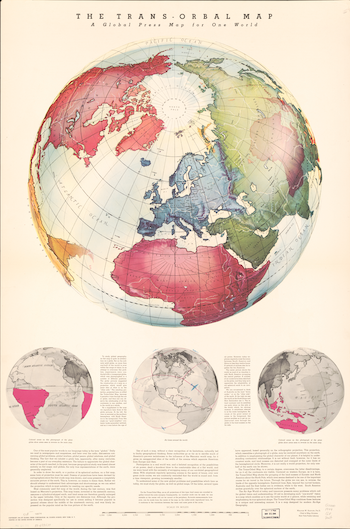
We live in an increasingly interconnected and interdependent world. For this reason, the expansion, acceleration, understanding, and application of internationalization are increasingly important at LMU and beyond. Indeed, the question of what internationalization means and who benefits from its framework is at the heart of this year’s Bellarmine Forum theme, “Internationalization and the Liberal Arts.”
“At a basic level, we can understand internationalization as a response to globalization, one that attempts to distinguish first and most clearly by its name – stressing relationality within its prefix, ‘inter’ – suggesting a space between nations rather than subsuming them with a globe,” said Eliza Rodriguez, Ph.D., professor of Chicana/o and Latina/o Studies and associate dean for DEI and Faculty Development.
In our current era of wall-building, ideological superiority, and exclusionary tactics, we must recognize that there is more to gain from finding common ground. It is in the space between where we can contemplate and be changed by viewpoints that differ from our own.

“A vibrant liberal arts curriculum and student experience include cultivating a global imagination and international literacies grounded in our interdisciplinary intellectual community. A liberal arts education in the Jesuit and Marymount tradition informs and deepens one’s worldview and is critically important in our interconnected world,” said Robbin D. Crabtree, Ph.D., dean of the LMU Bellarmine College of Liberal Arts.
Higher education plays a consequential role in helping students cultivate respect for different cultures and worldviews and in preparing graduates to communicate effectively across cultures. To serve this goal, the 2023-24 Bellarmine Forum will present a series of roundtables, panels, and lectures focused on bringing an international, intercultural, and global dimension to our work at LMU.
Jalylah Burrell, Ph.D., assistant professor of African American Studies, will moderate “Call and Response: African Diasporic Solidarities at LMU and Beyond,” a panel on Sept. 6 with LMU faculty and alumni discussing histories of exchange, collaboration, miseducation, and misunderstanding, as well as blueprints for solidarity on campus and beyond.
Eliza Rodriguez, along with Lauren Sinclair, Ph.D., assistant dean of Student Success, are co-directors of this year’s forum. On Sept. 7, they will be joined by BCLA faculty, students, and LMU leadership for a roundtable that will consider questions such as: How is internationalization more than an educational alibi for global structures of power? How do faculty and students experience the global and the local in our classes here in LA (a world-class city that boasts immigrants from around the world)– and abroad, like in global immersion courses or study abroad experiences? How does internationalization connect to the magis of an LMU education?
“The language we use to talk about power, place, education, and access absolutely shapes what we can imagine and how we think of it in material terms. What does ‘internationalization’ do for us that ‘globalization’ cannot? What does that look like in a liberal arts setting, in the experiences of our students?” said Rodriguez.
The vision at the center of LMU’s strategic plan is to “form a new generation of ethical leaders who will identify, analyze, and respond to the most challenging problems facing our rapidly changing global society.” We invite the entire LMU community to think more deeply about this goal at one of the many Bellarmine Forum events that will unfold throughout the 2023-24 academic year.
“We look forward to highlighting different perspectives and ways of thinking intentionally about internationalization, integrative learning experiences, and strengthening global engagement for all,” said Dean Crabtree. “Our approach always and already focuses on rigorous critical analysis and reflection, attention to the most marginalized in current global arrangements, and to serving the Common Good.”



